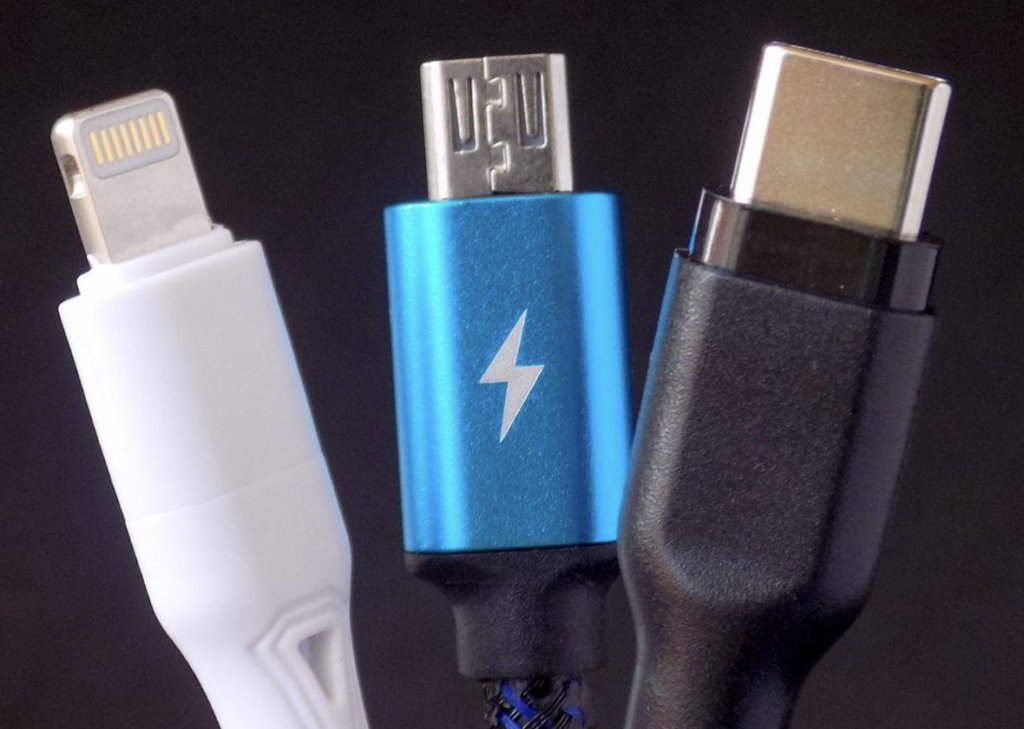Why Universal Phone Chargers Should Be A Thing, But Won’t Be Anytime Soon
Having universal chargers for smartphones and other devices would be exceedingly useful, but it won't likely happen in the US anytime soon.
This article is more than 2 years old

Growing up with electronics, it was customary to have a vast collection of charging cords to match each individual device. But, could there be a way to simplify the charging process? Could there be a way to have a universal charger that fits all electronics? In the EU, new legislation requires manufacturers to produce the same adaptable port for every smartphone. Now, US Democrats are pushing for a similar move to be adopted.
The EU legislation has been recently introduced but won’t be implemented until 2024. Once 2024 begins, all portable products and electronics must be manufactured with a universal charger port. This includes smartphones, tablets, e-readers like Kindles, earbuds, headphones and headsets, handheld videogame consoles, and speakers. The universal port will be the USB Type-C, which is already included in MacBook Pros and Nintendo Switches. The manufacturing shift will save EU residents up to €250 million a year and help reduce the amount of electronic waste in the region.
As many countries attempt to scale back on spending as well as carbon emissions, adopting a universal charger initiative could kill two birds with one stone. Democratic senators in America have taken note of the EU legislation, wanting to introduce a similar bill in the United States. Senators Ed Markey and Elizabeth Warren recently sent a letter to in a letter to the US secretary of commerce Gina Raimondo about universal chargers and their beneficial impact. Especially as the government and other massive companies move towards greener energy and less waste, adding the same USB ports to all manufactured devices could make a difference.
The senators who issued this letter elaborated on the benefits of universal chargers and the frustrations of keeping up with different brands. Frequently, consumers will need to spend extra money on separate chargers. If one is lost, that charger must be replaced instead of using another from a different device. This troublesome situation is in a business’s interest to spend more money, but it doesn’t positively affect the environment or a consumer’s wallet. “The EU has wisely acted in the public interest,” the letter explains, acknowledging how European legislation prioritized consumer needs over big business.
Substantial technology companies in the United States that make their own charging ports for their devices will likely be opposed to universal chargers. Apple is the most notorious for switching up its charging technology, currently manufacturing iPhones with the unique “Lightning” port. No other devices have charging compatibility with new iPhones, allowing Apple to monopolize this specific technology. Since Apple would be disproportionally impacted by universal charging legislation, the company is vocally against changing its ports. The tech company also believes that more waste would be created by people disposing of the Lightning chargers in favor of universal ones.
Though universal chargers would be undeniably helpful, this manufacturing decision should’ve occurred decades prior. With many different smartphones, tablets, and handheld gaming devices on the market, the amount of cords people have accumulated over the years would go to waste from universal-charging legislation. Though it may be too late to eliminate e-waste, implementing USB Type-C for all new technology could help consumers spend less superfluously.









